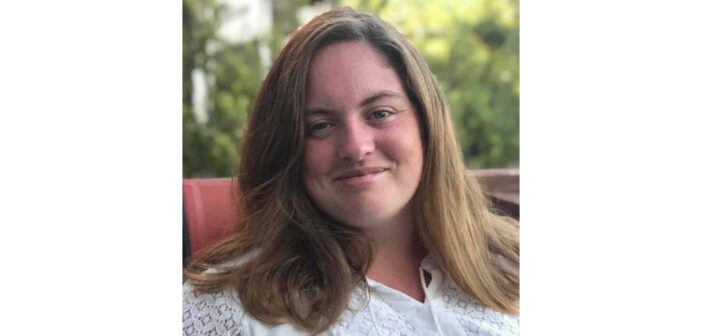Ever since I was little, I knew I wanted a career within sports.
My dad was a high school football coach at Liberty High School, and I grew up around sports. I played almost every sport: basketball, football, soccer, track and field. You name it. I probably did it at one point in my life.
When I was younger, my goal was to become the first female head coach in the NBA.
After I stopped playing basketball in 10th grade, I figured my plans would probably have to change. So, I asked myself: What do I love?
Well, I thought to myself, I love talking and I love sports. So why not combine those passions and become a sports broadcaster?
As I started researching colleges, I looked into what majors they had.
I was in love with Lehigh. It was my dream school and it was only 15 minutes away from my house, but it didn’t have a broadcasting program. The closest thing they had to broadcasting was journalism.
I was a little reluctant at first because I didn’t know how great of a writer I was, but I knew that this was probably the best option for me to get into broadcasting.
As I started covering games and getting more involved in sports journalism, it occurred to me just how few women work in this industry.
I really didn’t give it much thought at first, but when you’re the only girl in the room, it’s hard not to notice. I initially brushed it off because I didn’t think it was that big of a deal, but it is.
In September, the 2021 Sports Media Racial and Gender Report Card was released for the first time since 2018. The gender grade was an F. The report found that 83.3 percent of sports editors are men. Yes, you read that correctly. 83.3 percent. I’m not a math major, but that’s a heck of a lot of male sports editors.
The problem is that it’s negatively impacting sports media coverage. People want to report on those that look like them, and it’s exactly why only 4 percent of all sports media coverage is focused on women’s sports.
When you invest in women’s sports, good things happen. Last week’s game between No. 1 South Carolina women’s basketball and No. 2 UConn eclipsed 489,000 viewers, and the game was on a Monday at 12:00 p.m. Just imagine how many more people would have watched the game if it wasn’t in the middle of the day.
It’s not that no one cares about women’s sports. It’s the opposite.
So many people care. While almost every sports league saw viewership decrease during the pandemic, the WNBA and the NWSL saw their viewership increase.
It’s hard to see women in sports not being given the same opportunities as their male counterparts. The more exposure there is, the more eyes on that sport, which leads to more money in the long run.
The NBA and the NFL make more money because they are invested in more than any women’s sports.
Media sites need to realize the impact they can have on women’s sports. They are the first ones to write articles when abuse happens in the NWSL or when there are discrepancies in the NCAA Women’s Basketball Tournament. Yet, they fail to actually provide coverage where and when it matters.
When the Chicago Sky won the WNBA Championship with a sold-out crowd in October, Sports Center had just two posts about it in a 24-hour span. TWO. Do you know how ridiculous that is? The Milwaukee Bucks had 12 posts about them in a 24-hour span when they won the NBA Championship in July.
I don’t care how long it takes me or what it’s going to take to get there, but I will spend the rest of my life trying to fix this broken model for women’s sports coverage.
Bet on Women.






Comment policy
Comments posted to The Brown and White website are reviewed by a moderator before being approved. Incendiary speech or harassing language, including comments targeted at individuals, may be deemed unacceptable and not published. Spam and other soliciting will also be declined.
The Brown and White also reserves the right to not publish entirely anonymous comments.
3 Comments
Unfortunately, your high school did not broadcast its sports events. The NFHS Network does, budding broadcasters get their start by doing it. Even now you can broadcast to yourself, or anyone willing to listen to a copy of it. Another way to get involved is to think up good questions to ask athletes or coaches. Lots of people ask but the questions are often inane.
Knowing the subject is the key to entertaining/informative interviews. Here is a clip from Luke Winstel, a broadcaster (jr at Mercer U in Macon GA) who has done broadcasts in multiple sports beginning as a high school soph. He also does podcasts. https://www.youtube.com/watch?v=PBtu8DxnD9A. He has been aggressive in forwarding his career and is an outstanding individual.
I hope to read or hear more from you. May you find success.
yes ,sports are important for maintain a healthy body and mind . I benefited a lot from reading your content .I want more content later .thanks!
One of the best sites i have ever visited. I hope to get more content like this in future.